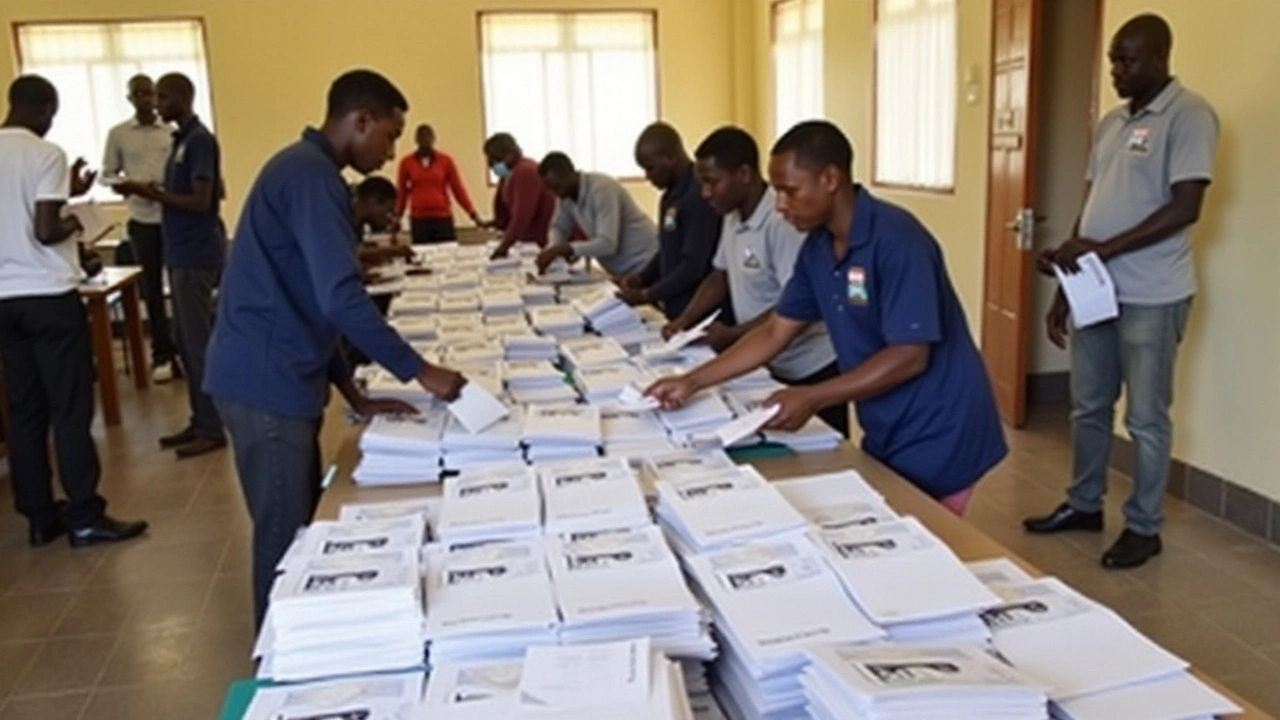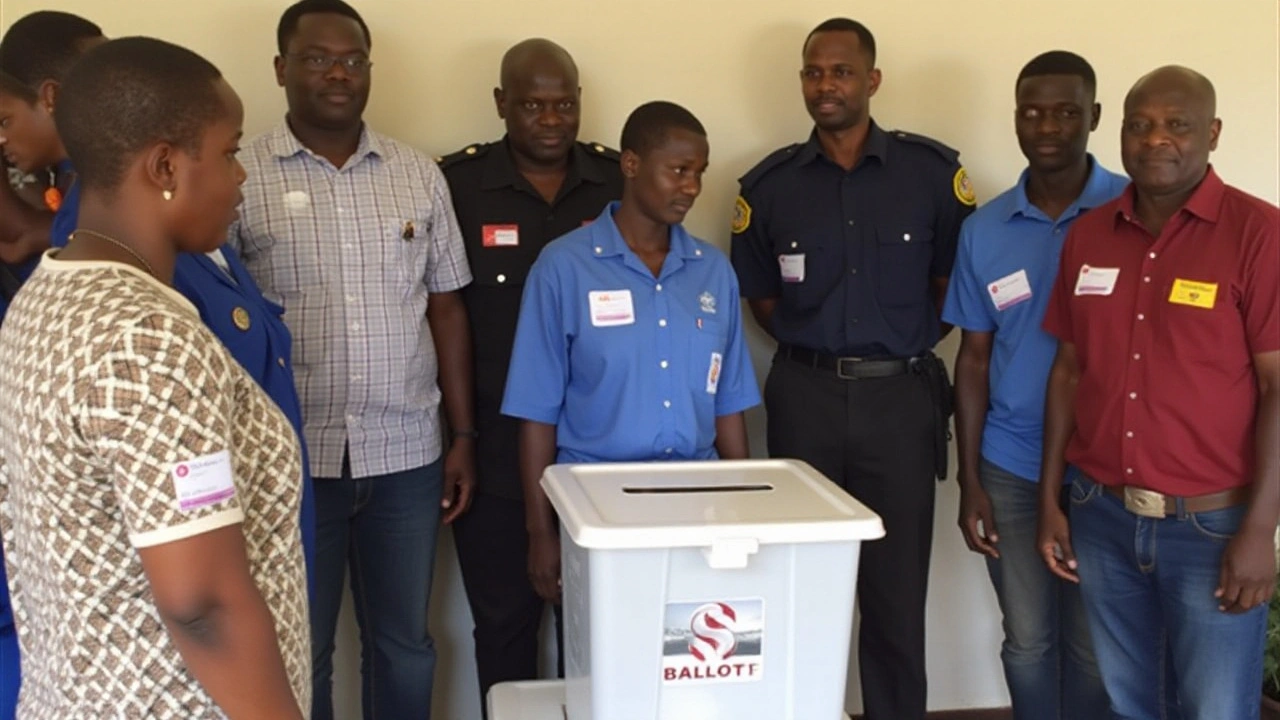Introduction to Botswana's Political Landscape
Botswana, often lauded for its stable democracy in the African continent, finds itself at another political crossroads with the recent elections aimed at deciding the future leadership of the country. Ever since gaining independence from British colonial rule in 1966, the nation has been under the governance of the Botswana Democratic Party (BDP). With Mokgweetsi Masisi at its helm, the BDP is not only seeking another term for him but also a continuation of its governance that has stretched over six decades. The implications of this election are profound, going beyond just a transfer of power and constituting a reflection on the political history and aspirations of Botswana as a nation rich in resources yet grappling with contemporary challenges.
Understanding the Election Process
The voting process in Botswana is structured to ensure that citizens are pivotal in shaping the governmental narrative. This year's elections took place on a Wednesday, capturing the attention of both local and international observers who are keenly interested in the outcome. Casting of votes commenced early on the election day, spreading across various regions known for their differing political inclinations. By late Wednesday, as the sun dipped below the horizon, the polling stations closed their doors, paving the way for the counting of votes to begin. This process involves meticulous verification and tallying to ensure that each vote cast is counted accurately and fairly, reflecting the true voice of the electorate.
Outcome Expectations and Incumbency Advantage
In conversations surrounding this pivotal election, many pundits and analysts predict an outcome favoring President Mokgweetsi Masisi and his BDP, largely due to the party's established presence and influence across the nation. The BDP's long tenure and legacy since Botswana's independence bring both advantages and criticism. Leveraging over 58 years of continuous governance, the party has built formidable roots within the political and social structures of the country, making them a robust force in the elections. However, the continued dominance of the BDP is not without its share of challenges and opposition from emerging political entities aiming to disrupt their unbroken streak.
Botswana's Rich Natural Resources and Their Political Impact
The electoral outcomes in Botswana are deeply intertwined with the nation's wealth of diamonds, a significant factor in its economy and development trajectory. The diamond industry, contributing to substantial national revenue, places substantial responsibility on the ruling party to manage these resources sustainably and equitably. The way this industry is handled can often sway public sentiment, as it directly impacts economic growth and job creation. Consequently, any ruling party must navigate the complexities of resource management alongside maintaining good governance to win and retain the public's favor. This connection to Botswana's natural wealth makes the election results all the more critical, painting a broader picture of the country’s socio-economic direction in the coming years.
The Road Ahead for Botswana's Leadership
As the results of the election are keenly awaited, the discussions extend beyond just the numbers. It’s about the direction that Botswana will chart in the coming decade under its leadership. Families, businesses, and various sectors of society look toward the results with hopeful or skeptical eyes, pondering the effectiveness of the current leadership or wishing for reformation and fresh changes. Whichever way the results swing, they will undoubtedly play a crucial role in shaping the political framework and socio-economic policies that will govern Botswana, affecting everything from grassroots development to its stature on the global stage.
Botswana Democratic Party's Journey: A Historical Perspective
The BDP has long been a symbol of stability and continuity in Botswana's political saga. The party's commitment to a democratic process and economic progress has significantly shaped the growth journey of the country. Ensuing elections have often reaffirmed their governance model, although newer generations and a rapidly changing global environment challenge long-held perceptions and policies. This historical continuity versus change creates a dynamic political space where voters are tasked with weighing the benefits and limitations of sustained BDP rule.

Conclusion: Awaiting Botswana's Political Future
As the nation awaits the official results from the election, the air is filled with anticipation and mixed emotions. Supporters of the BDP are hopeful for yet another victory, one that assures them of continued projects and policies. Meanwhile, opposition parties and their followers look for opportunities to introduce different policies and ideas that they believe will better serve the people of Botswana. Ultimately, these elections are not merely about which party holds power but rather about how that power is exercised to improve the lives of its citizens and elevate Botswana on the world stage. The significance of this election in Botswana cannot be overstated, as it will undeniably play a critical role in the shaping of its future trajectory.


Aaron Leclaire
November 3, 2024 AT 04:13Mitch Roberts
November 4, 2024 AT 04:47Mark Venema
November 5, 2024 AT 20:33Jasvir Singh
November 6, 2024 AT 05:07Brian Walko
November 7, 2024 AT 07:26Derrek Wortham
November 8, 2024 AT 23:23Derek Pholms
November 10, 2024 AT 20:21